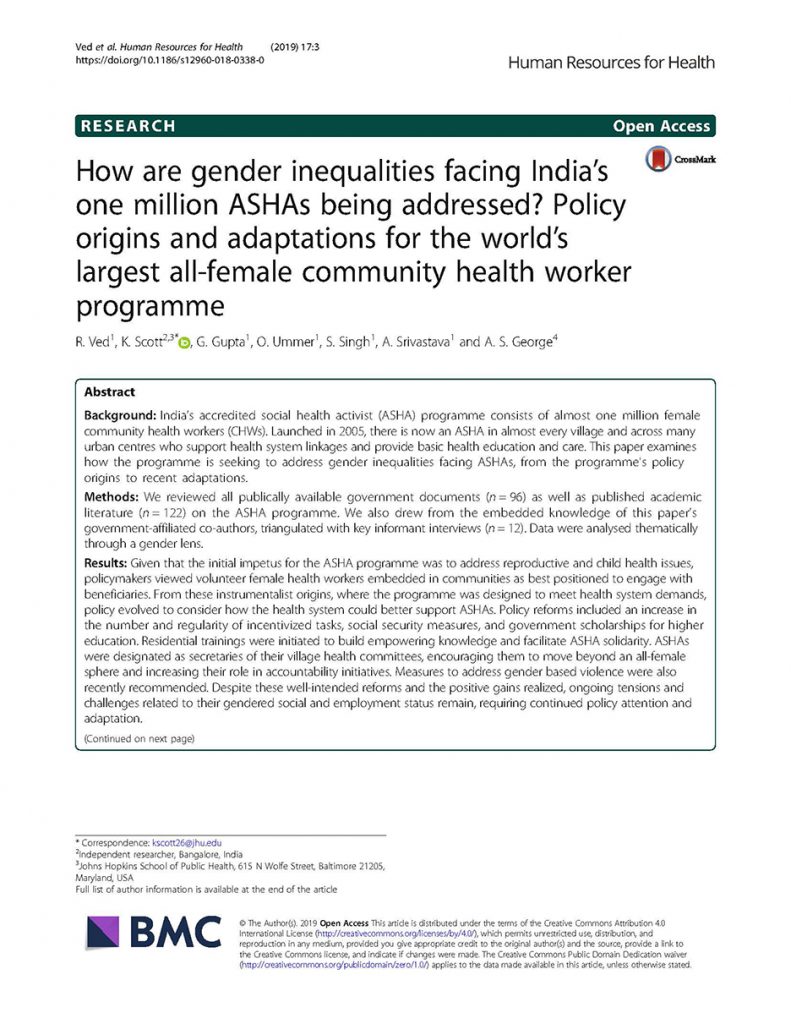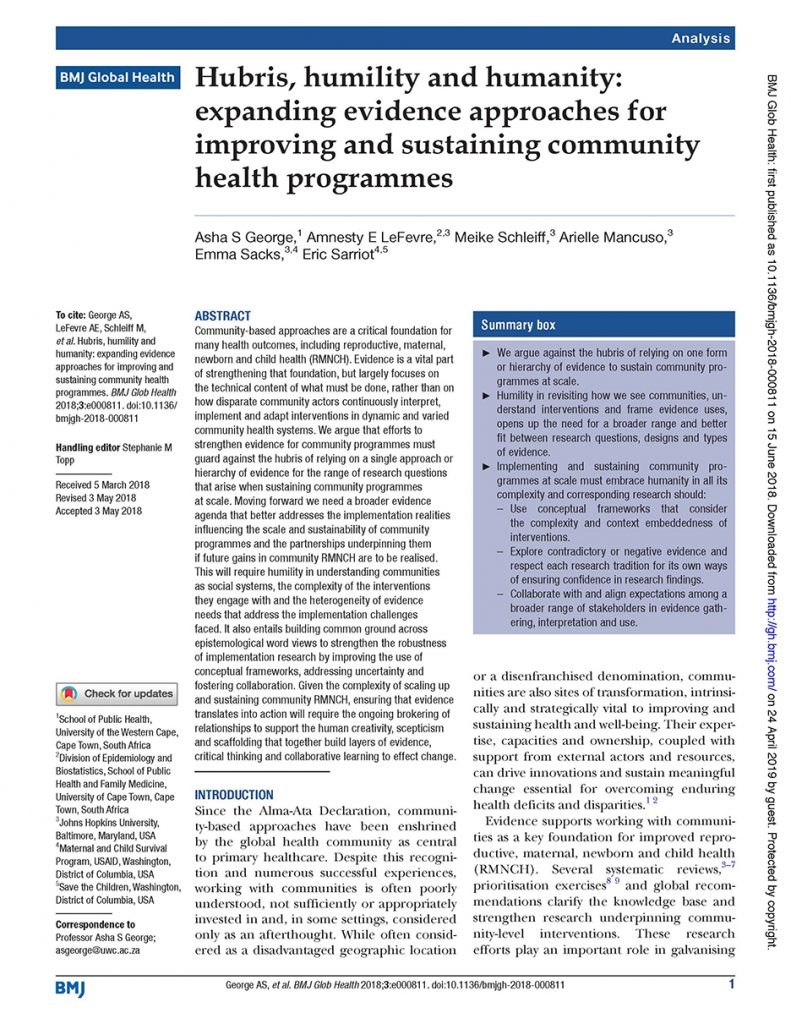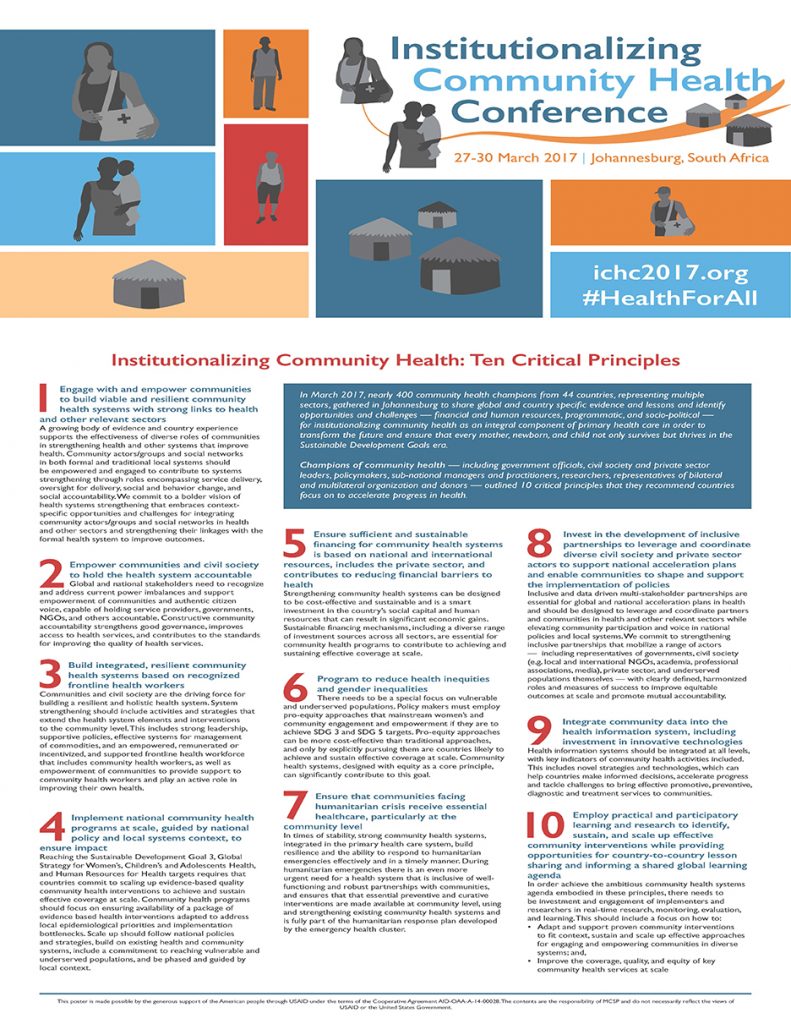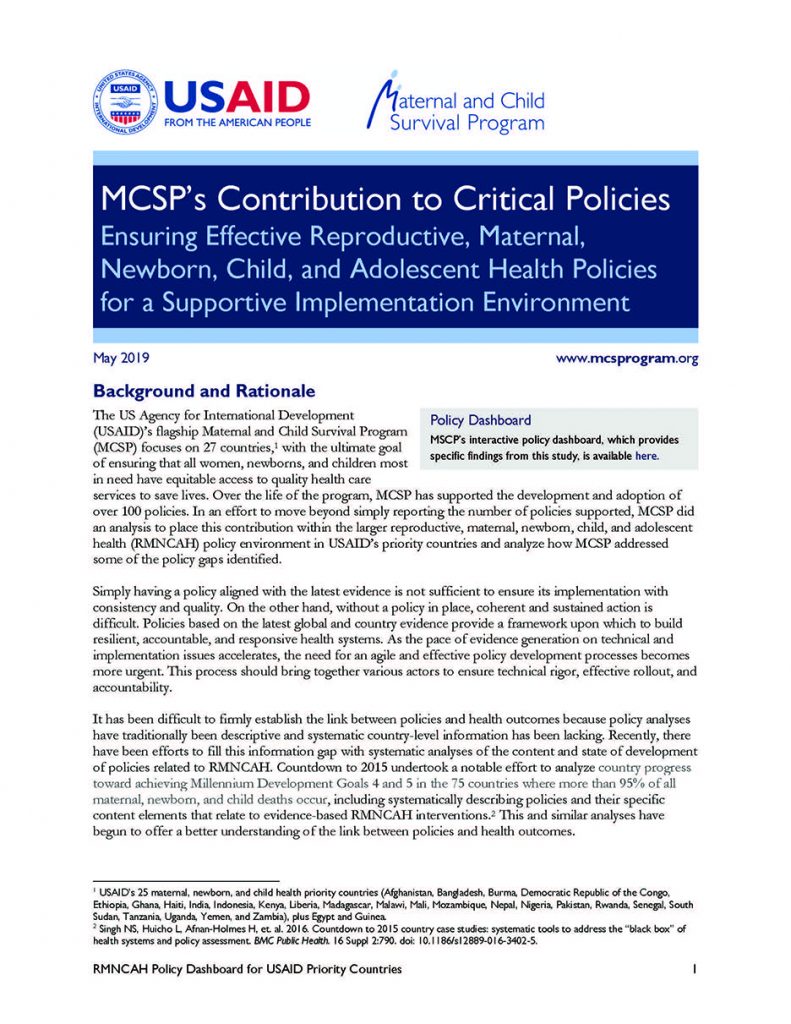
Over the life of the program, MCSP has supported the development and adoption of over 100 policies. In an effort to move beyond simply reporting the number of policies supported, MCSP did an analysis to place this contribution within the larger reproductive, maternal, newborn, child, and adolescent health (RMNCAH) policy environment in USAID’s priority countries […]
Read More…
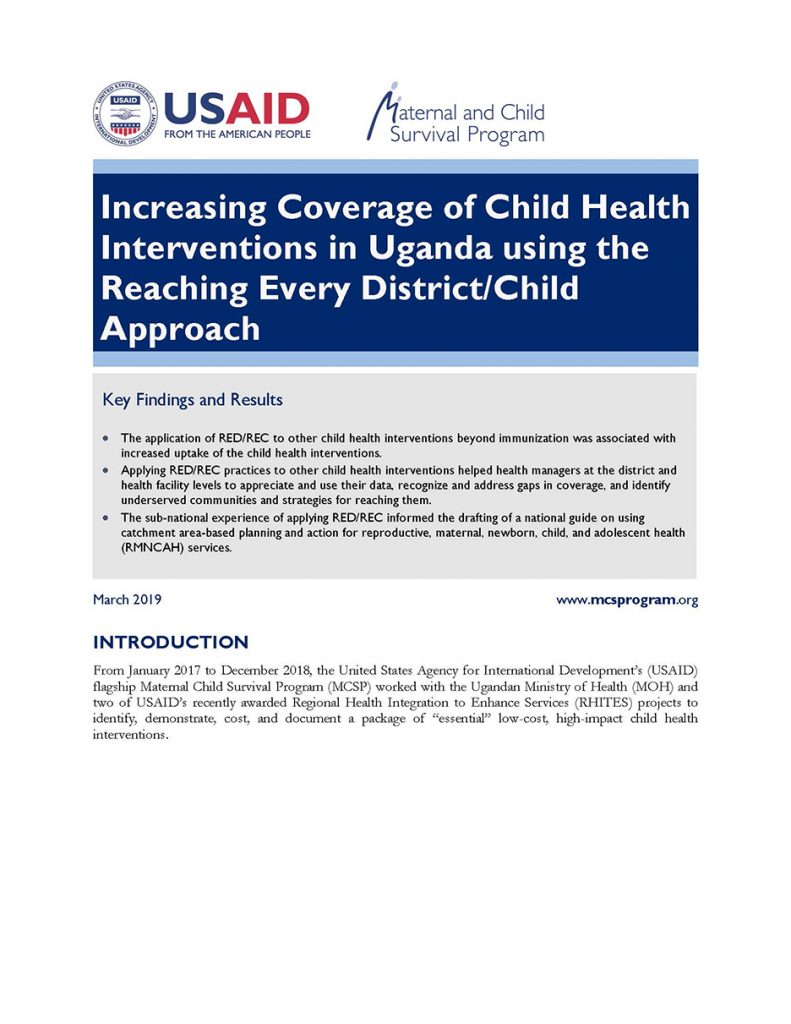
This brief focuses on MCSP’s experience adapting and applying the Reaching Every District/Reaching Every Child (RED/REC) approach, which was first used successfully in immunization, to enhance the population’s equitable and sustainable access to a broader package of child health interventions. […]
Read More…
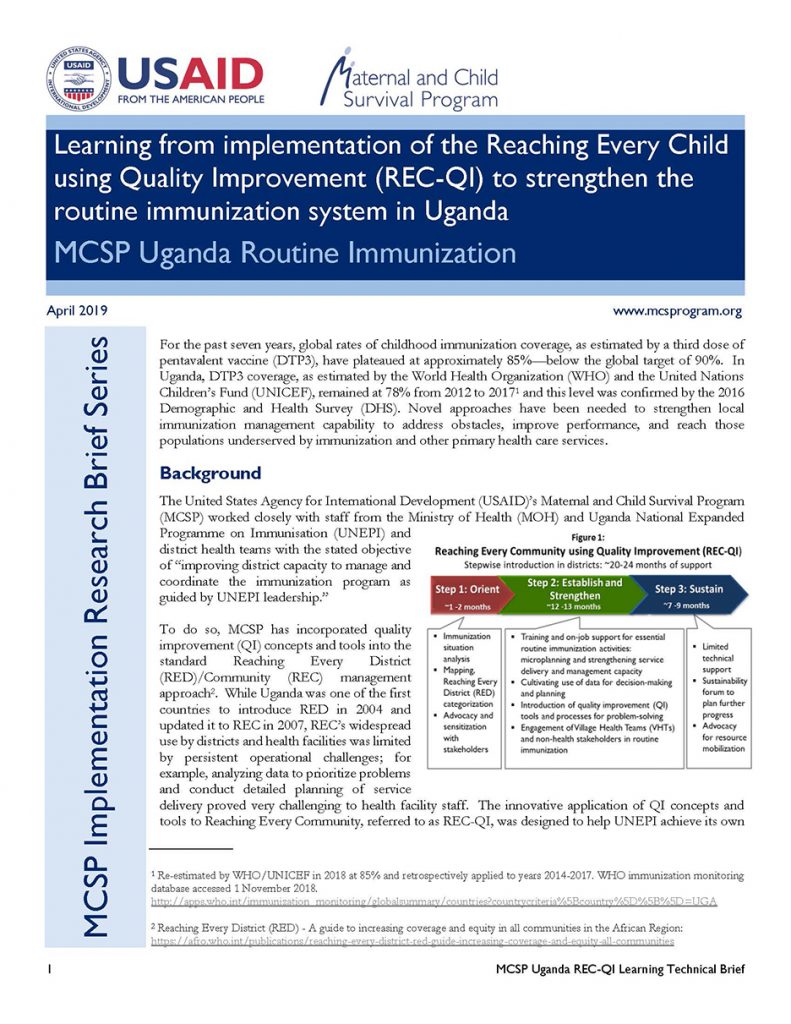
MCSP has incorporated quality improvement (QI) concepts and tools into the standard Reaching Every District (RED)/Community (REC) management approach. While Uganda was one of the first countries to introduce RED in 2004 and updated it to REC in 2007, REC’s widespread use by districts and health facilities was limited by persistent operational challenges; for example, […]
Read More…
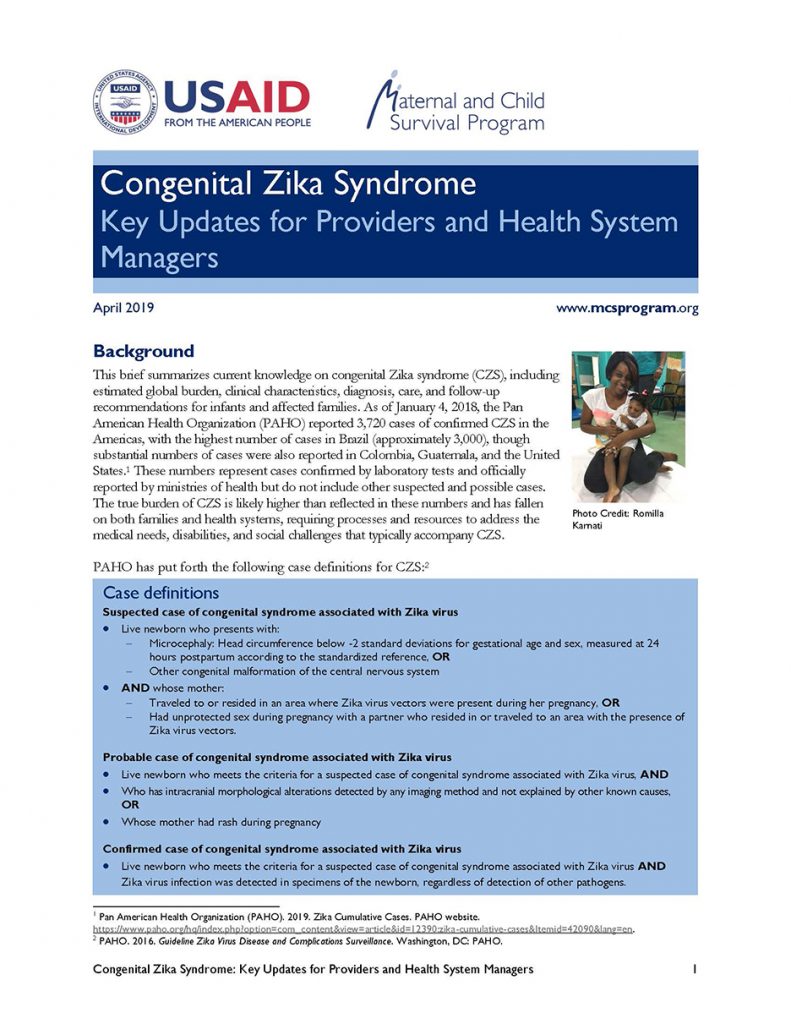
This brief summarizes current knowledge on congenital Zika syndrome (CZS), including estimated global burden, clinical characteristics, diagnosis, care, and follow-up recommendations for infants and affected families. […]
Read More…
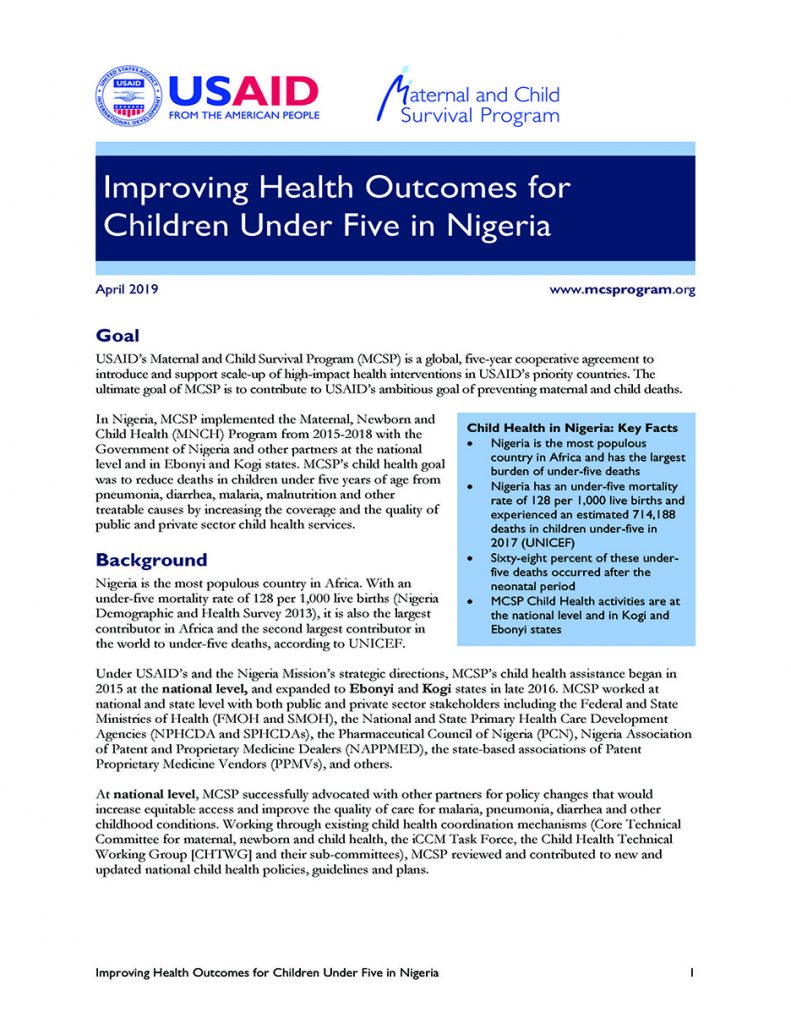
In Nigeria, MCSP implemented the Maternal, Newborn and Child Health (MNCH) Program from 2015-2018 with the Government of Nigeria and other partners at the national level and in Ebonyi and Kogi states. MCSP’s child health goal was to reduce deaths in children under five years of age from pneumonia, diarrhea, malaria, malnutrition and other treatable […]
Read More…
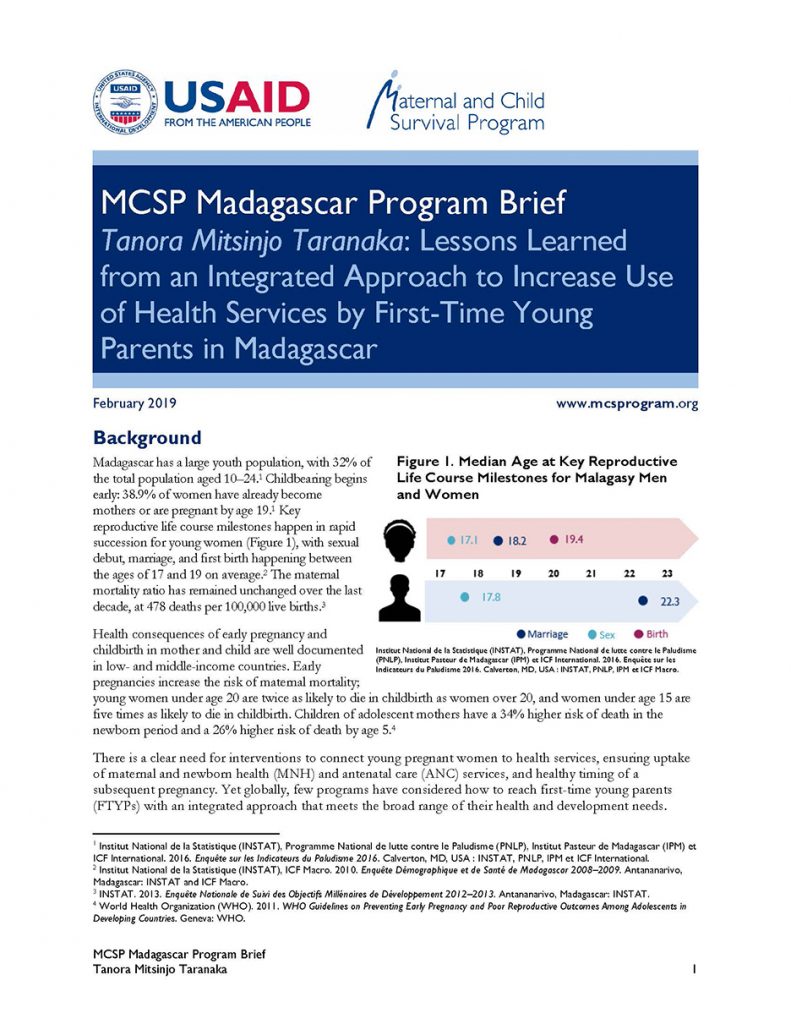
MCSP supported the Ministry of Public Health in Madagascar to reduce maternal and newborn mortality over the course of its implementation period (2014–2019). The program interventions, which covered the 16 USAID priority regions, aligned with the Roadmap for the Campaign to Accelerate the Reduction of Maternal and Neonatal Mortality, especially Strategy Three: “Providing essential integrated […]
Read More…
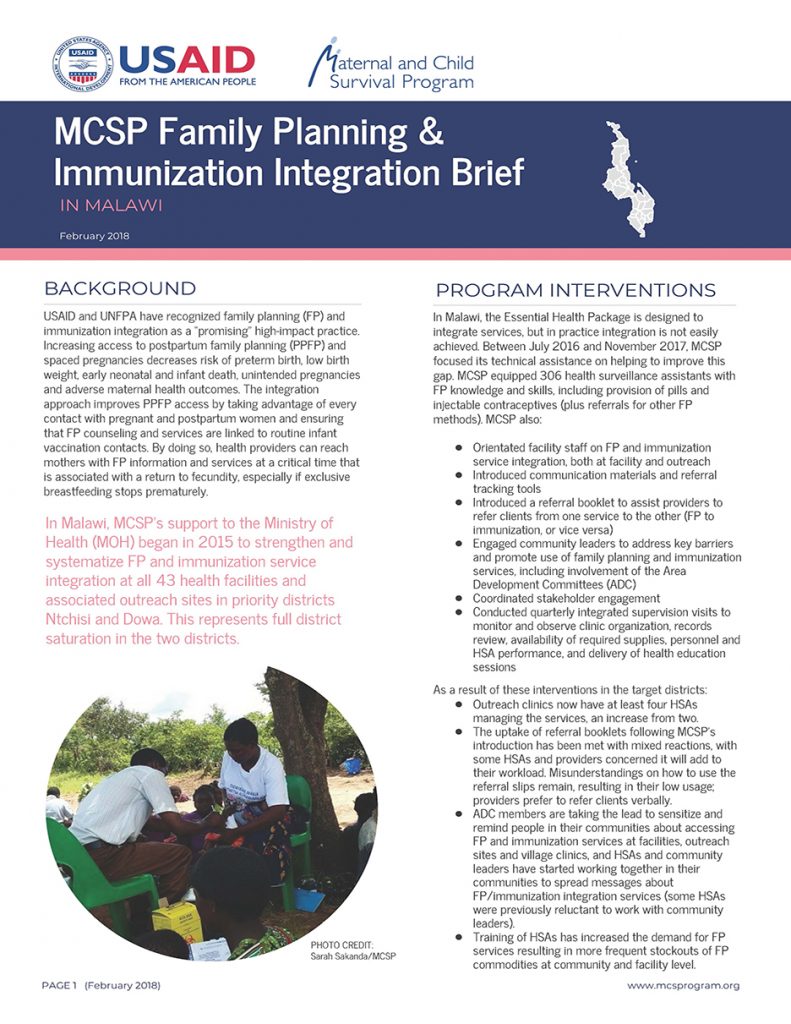
In Malawi, MCSP’s support to the Ministry of Health (MOH) began in 2015 to strengthen and systematize FP and immunization service integration at all 43 health facilities and associated outreach sites in priority districts Ntchisi and Dowa. […]
Read More…

